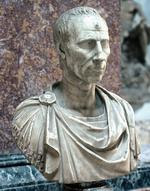
These words came to mind after watching Big Brother Africa, Episode 3, for a few unwanted moments. One of the contestants, inmates or whatever they are called, made sweeping statements in an endeavor to create the impression that he is intellectually superior to his less fortunate companions. None of his fellow prisoners, some of which appear to be very smart, rose to the occasion to put him back in his cage, but that is another story.
The source most often quoted as the origin of these words, is part of poem written by Alexander Pope (1688-1744) in his “Essay on Criticism”
“A little learning is a dang'rous thing;
Drink deep, or taste not the Pierian spring:
There shallow draughts intoxicate the brain,
And drinking largely sobers us again.
Fir'd at first sight with what the Muse imparts,
In fearless youth we tempt the heights of Arts,
While from the bounded level of our mind
Short views we take, nor see the lengths behind;
But more advanc'd, behold with strange surprise
New distant scenes of endless science rise!”
(Lines 215 to 224)
The meaning of the first line is fine, it could be dangerous to tackle something if you do not have the necessary knowledge. The first surrealistic image that comes to mind is Karin bearing down on a faulty toaster with a screwdriver in her hand, scary stuff.
The second line refers to the Pierian Spring. What is the significance of this spring? This spring originates from Greek mythology. Situated in Macedonia it was the sacred place of the Muses. Now, it was believed that if a person drank from this spring it would serve as a source of inspiration and great knowledge.
So, to drink deep from the spring implies to full onself completely (with knowledge), rather than just a taste, which is too little
“The shallow draughts intoxicate the brain” meaning that one can get drunk on a little bit and think you know everything, which is dangerous.
“And drinking largely sobers us again” probably alluding to an increase in knowledge implies how little we know, a sobering thought.
So, to understand the meaning of the first line one has to read further to see it in context.
There are a number of expressions in common use today that are used out of context, in that they form part of a larger source.
The second line is used in a number of writings, but the oldest reference I could find was that of Titus Petronius in the Satyricon, which reads as follows:-
"This is the right armour of genius-
Drink deep or taste not the Pierian spring.
Only then pour out your heart."
Same meaning different context.
Hope this post will stimulate someone to go to other sources to confirm,test and question.
Image from Wikipedia







































